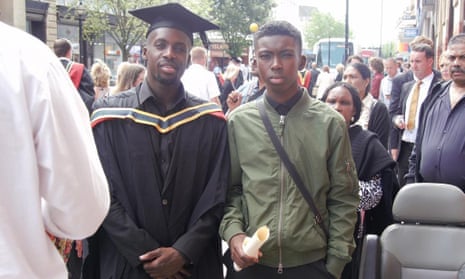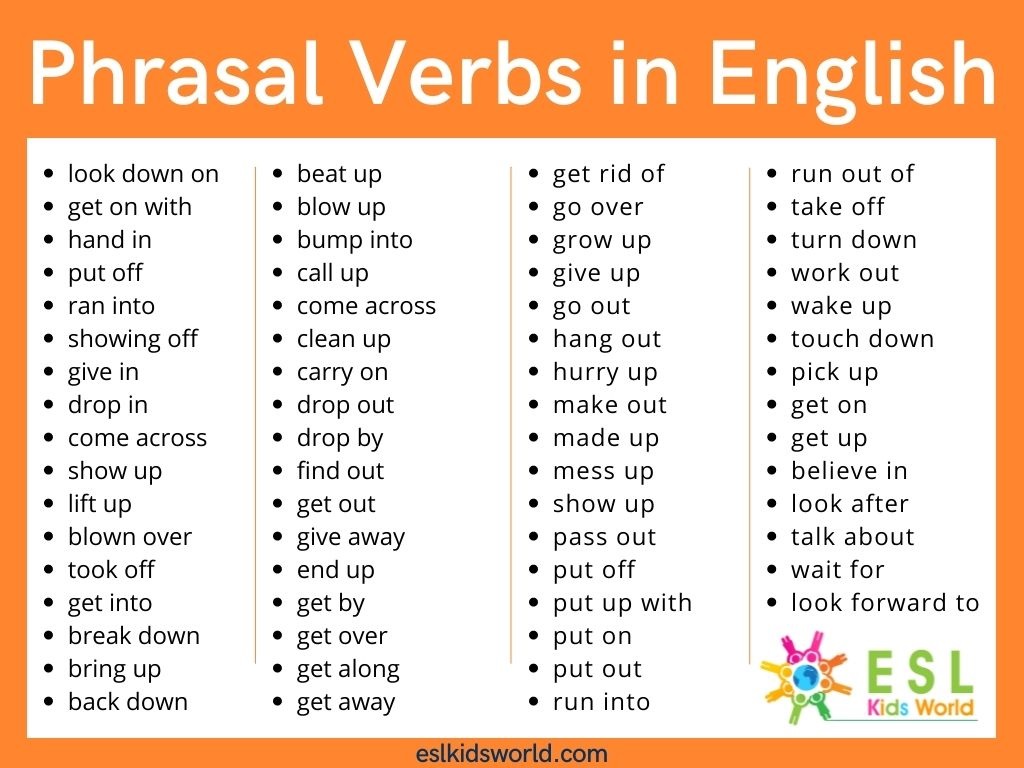Wednesday, 20 December 2023
Angelina Jolie receives the Jean Hersholt Humanitarian Award at the 2013 Governors Awards
The most common English idioms
These English idioms are extremely common in everyday conversation in the United States. You will hear them in movies and TV shows and can use them to make your English sound more like that of a native speaker.
| Idiom | Meaning | Usage |
|---|---|---|
| A blessing in disguise | a good thing that seemed bad at first | as part of a sentence |
| A dime a dozen | Something common | as part of a sentence |
| Beat around the bush | Avoid saying what you mean, usually because it is uncomfortable | as part of a sentence |
| Better late than never | Better to arrive late than not to come at all | by itself |
| Bite the bullet | To get something over with because it is inevitable | as part of a sentence |
| Break a leg | Good luck | by itself |
| Call it a day | Stop working on something | as part of a sentence |
| Cut somebody some slack | Don't be so critical | as part of a sentence |
| Cutting corners | Doing something poorly in order to save time or money | as part of a sentence |
| Easy does it | Slow down | by itself |
| Get out of hand | Get out of control | as part of a sentence |
| Get something out of your system | Do the thing you've been wanting to do so you can move on | as part of a sentence |
| Get your act together | Work better or leave | by itself |
| Give someone the benefit of the doubt | Trust what someone says | as part of a sentence |
| Go back to the drawing board | Start over | as part of a sentence |
| Hang in there | Don't give up | by itself |
| Hit the sack | Go to sleep | as part of a sentence |
| It's not rocket science | It's not complicated | by itself |
| Let someone off the hook | To not hold someone responsible for something | as part of a sentence |
| Make a long story short | Tell something briefly | as part of a sentence |
| Miss the boat | It's too late | as part of a sentence |
| No pain, no gain | You have to work for what you want | by itself |
| On the ball | Doing a good job | as part of a sentence |
| Pull someone's leg | To joke with someone | as part of a sentence |
| Pull yourself together | Calm down | by itself |
| So far so good | Things are going well so far | by itself |
| Speak of the devil | The person we were just talking about showed up! | by itself |
| That's the last straw | My patience has run out | by itself |
| The best of both worlds | An ideal situation | as part of a sentence |
| Time flies when you're having fun | You don't notice how long something lasts when it's fun | by itself |
| To get bent out of shape | To get upset | as part of a sentence |
| To make matters worse | Make a problem worse | as part of a sentence |
| Under the weather | Sick | as part of a sentence |
| We'll cross that bridge when we come to it | Let's not talk about that problem right now | by itself |
| Wrap your head around something | Understand something complicated | as part of a sentence |
| You can say that again | That's true, I agree | by itself |
| Your guess is as good as mine | I have no idea | by itself |
‘People are proud of this green spirit of ours’: how a small Spanish city rejected cars
click here to read the article

Read the article and answer the questions:
1. Why is Vitoria-Gasteiz called 'the green ring'?
2. Has the population of the city increased or decreased over the years?
3. When did the plan to build the city arise?
4. Are there any other climate-neutral cities in Europe?
Monday, 11 December 2023
Harvard, Penn, MIT Heads Defend Response to Israel-Gaza Protests on Campus
Word of the Year

The editors of the Oxford dictionary left the selection for Word of the Year to language lovers.
Over 30,000 people voted and selected four finalists for word of the year. They were “Swiftie” (fans of Taylor Swift), “situationship” (an informal romantic or sexual relationship), “prompt” (an instruction given to an artificial intelligence program), and “rizz.”
If you are not familiar with “rizz,” it is time to learn its meaning. It is Oxford’s word of the year. “Rizz” is believed to come from the word “charisma.” Oxford says it means having “style, charm or attractiveness.” It can also mean the “ability to attract a romantic or sexual partner.” The word is popular among Generation Z -- people born during the late 1990s and early 2000s.
“Rizz” can be used as a verb, too. To “rizz up” means “to attract, seduce, or chat up (a person).”
Oxford editors said they chose “rizz” as “an interesting example of how language can be formed, shaped, and shared within communities, before being picked up more widely in society.”
Read the article and make up a sentence with the word 'rizz'. Post it in the commentary section below.Harvard professors defend president amid calls to resign after statements on antisemitism

Read the article and answer the questions:
1. What happened to the presidents of the University of Pennsylvania and MIT amid the Israeli-Palestinian conflict?
2. What was the students' reaction to the crisis?
3. What was Claudine Gray's response to the accusations?
Leave your answers in the commentary section below.
Monday, 27 November 2023
Listeners | Stanford CS224U Natural Language Understanding | Spring 2021
10 Internet Words You Should Know Today

Digital Nomad
A digital nomad is simply any professional who: Makes a living by applying their skill sets in a digital sphere of work. Digital Nomads usually work remotely or while traveling.
Cookie
A cookie is a small piece of information on your computer that websites use to track your data between sessions. They’re what let you add an item to your cart and return it later, or check the Remember me box so you don’t have to sign in every time.
Netizen
The term netizen is a portmanteau of the English words internet and citizen, as in a “citizen of the net” or “net citizen”. So a Netizen is an active participant in the online community of the Internet.
Dark Web
The dark web is a name for websites that you can’t access without special software. These sites aren’t indexed by search engines and are often criminal, vile, or otherwise dangerous.
Lurk
Lurking refers to people who watch an online community, but don’t participate themselves. This might be someone who uses Twitter without an account or checks Reddit every day but never votes or comments.
Troll
A troll is someone who intentionally starts arguments or otherwise upsets people online. Typically, trolls do this with off-topic or provocative messages designed to get an emotional response.
Web 3
Web3 (also known as Web 3.0) is an idea for a new iteration of the World Wide Web which incorporates concepts such as decentralization, blockchain technologies, and token-based economics. We are currently on Web 2.0 at the time of writing this article.
Doxing
Doxing refers to digging up someone’s private information and publishing it on the internet (usually with malicious intent). This opens the person up to danger, sometimes requiring them to move.
404
One of the most common errors seen online, a 404 simply means that the page you’re looking for doesn’t exist. Typically, you’ll see this when you click a link to a page that’s no longer available or enter an incorrect address into your browser.
Clickbait
Clickbait is a term for content formed or titled in a way that tempts users into clicking it. Usually, clickbait titles use sensational language and promise something amazing if the reader clicks through. Clickbait can also draw out one-sentence pieces of information into an entire article
Did you count the words? if yes, then here is a bonus word for you.
Metaverse
Meta defines the metaverse as “a set of virtual spaces where you can create and explore with other people who aren’t in the same physical space as you.” Though metaverse technology is years away from being fully realized, it is expected to eventually be a place where you can work, play, learn, create, shop, and interact with friends in a virtual, online environment.
Make up 3 sentences with any of these words and post them in the commentary section below.
Commas between Main Clauses - Writing English
Use a comma between two main clauses which are separated by and or but.
Example: We ran out of fuel, and the nearest petrol station was 5 miles away.
Use a comma to separate parts of a sentence in a sequence.
Example: She ran down the stairs, opened the door, saw her boyfriend(,) and gave him a kiss.
Don’t use a comma if these parts of the sentence are separated by and or but.
Example: She ran down the stairs and opened the door and saw her boyfriend and gave him a kiss.
Note: Don’t use a comma, but a semi colon, if two main clauses are not separated by and or but.
Monday, 6 November 2023
Advanced (C2) Verbs to Build Your Vocabulary
Punctuation: commas (,)
We use commas to separate a list of similar words or phrases:
It’s important to write in clear, simple, accurate words.
They were more friendly, more talkative, more open than last time we met them.
We do not normally use a comma before and at the end of a list of single words:
They travelled through Bulgaria, Slovakia, the Czech Republic and Poland.
American English does use a comma in lists before and:
We took bread, cheese, and fruit with us.
We use commas to separate words or phrases that mark where the voice would pause slightly:
I can’t tell you now. However, all will be revealed tomorrow at midday.
We had, in fact, lost all of our money.
James, our guide, will accompany you on the boat across to the island.
Separating clauses with commas
When main clauses are separated by and, or, but, we don’t normally use a comma if the clauses have the same subject. However, we sometimes use commas if the clauses have different subjects:
They were very friendly and invited us to their villa in Portugal. (same subject)
Footballers these days earn more money but they are fitter and play many more matches. (same subject)
It was an expensive hotel in the centre of Stockholm, but we decided it was worth the money.(different subjects)
When a subordinate clause comes before the main clause, we commonly use a comma to separate the clauses. However, we do not always do this in short sentences:
If you get lost in the city centre, please don’t hesitate to text us or phone us.
If you get lost just phone us.
When we use subordinate or non-finite comment clauses to give further details or more information, we commonly use commas to separate the clauses:
You do need to wear a darker jacket, if I may say so.
To be honest, I thought they were very very rude.
Commas and relative clauses
We use commas to mark non-defining clauses. Such clauses normally add extra, non-essential information about the noun or noun phrase:
The ambulance, which arrived after just five minutes, took three people to the hospital immediately.
Hong Kong, where the first ASEAN meeting was held, is a very different city now.
The same is true for non-finite clauses:
The storm, lasting as it did for several days, caused serious damage to villages near the coast.
We don’t use commas to mark defining clauses:
Barcelona was the Spanish city that was selected for the Olympic Games.
Not: … the Spanish city, that was selected …
Commas and speech forms
We commonly separate tags and yes-no responses with commas:
They are going to the party, aren’t they?
No, thank you. I’ve already eaten too much.
We also usually separate vocatives, discourse markers and interjections with commas:
Open the door for them, Kayleigh, can you. Thanks. (vocative)
Well, what do you think we should do about it? (discourse marker)
Wow, that sounds really exciting. (interjection)
We use commas to show that direct speech is following or has just occurred:
He said in his opening speech, ‘Now is the time to plan for the future.’ (or He said in his opening speech: ‘Now is the time to plan for the future.’)
When the direct speech is first, we use a comma before the closing of the quotation marks:
‘We don’t want to go on holiday to the same place every year,’ he said impatiently.
‘When is it too early to teach your kids about genocide?’ Inside the Imperial War Museum’s harrowing new galleries

Read the article and answer the questions:
1. What does 'Guess' depict?
2. What was Virginia Woolf's reaction to this work of art?
3. What other pieces of war art do you know about?
Post your answers in the commentary section below.
Monday, 23 October 2023
Present perfect with time adverbials
We often use the present perfect with adverbials which refer to the recent past:
recently, just, only just.Scientists have recently discovered a new breed of monkey.
We have just got back from our holidays.
or adverbials which include the present:
so far until now up to now |
Have you ever seen a ghost?
Where have you been up to now?
A: Have you finished your homework yet?
B: No, so far I've only done my history.
After a clause with the present perfect we often use a clause with since to show when something started in the past:
I've worked here since I left school.
I've been watching that programme every week since it started.
Make up 3 sentences in Present Perfect with time adverbials and post them below.
Iceland’s first full-day women’s strike in 48 years aims to close pay gap

Read the article and answer the questions:
1) What is the women's strike in Iceland about and what categories of society does it include?
2) What are the demands of the strikers?
Post your answers in the commentary section below.
Tuesday, 17 October 2023
Have been and have gone
We use have/has been when someone has gone to a place and returned:
A: Where have you been?
B: I've just been out to the supermarket.
A: Have you ever been to San Francisco?
B: No, but I've been to Los Angeles.
But when someone has not returned, we use have/has gone:
A: Where's Maria? I haven't seen her for weeks.
B: She's gone to Paris for a week. She'll be back tomorrow.
Make up 3 sentences with have been /have gone and post them in the commentary section below.
Standing up for Palestine is also standing up to save the west from the worst of itself

Read the article and comment on it:
1) How do you feel about the western values after reading the article? Do they really exist?
2) How did the people in Europe react to the events in Gaza?
3) What is your opinion regarding the ongoing conflict?
Thursday, 9 March 2023
A moment that changed me: I was a personal trainer – then my teenage cousin pushed me to go to university

Read the article and answer the questions:
1. Who advised Derek to go to university?
2. Which university did he choose?
3. What was the first work of fiction that Derek read?
Angelina Jolie receives the Jean Hersholt Humanitarian Award at the 2013 Governors Awards
Watch the interview and answer the question: What problem does Angelina raise in her acceptance speech?

-
The third conditional is used for a past situation that didn't happen . In the video, Finn is lost. He says: If I had paid attention… ...
-
Zero Conditional Time: General Function: Habits, tendencies, rules, and scientific facts. Structure: When + Present Simple, Present Simple. ...
-
click here to read the article Read the article and answer the questions: 1. What are the benefits of living in Valencia for expats? 2. Ho...
